He died on the very day that President Kennedy was assassinated, November 22, 1963, so it is not surprising that the event was overshadowed at the time. With the passage of sixty years, C.S. Lewis’s reputation is undiminished and the sheer range of his achievements as a writer and teacher appears ever more prodigious. For many, he is most beloved as the creator of the seven Narnia books: for others as the author of the science-fiction Space trilogy, which is not only a page-turner but horrifyingly and accurately prophetic.
For still others — and for a long time this would have included myself — the great work is his scholarly but always readable contribution to literary studies. I am thinking of the ever-accessible English Literature in the Sixteenth Century Excluding Drama, or the wonderful account of how medieval humanity looked at the cosmos: The Discarded Image. When I made feeble attempts to teach medieval literature to undergraduates, and when I wrote my book on Dante, I found I read Lewis’s chapter in that book, entitled “The Heavens,” so often that I almost knew it by heart.
Although Lewis risked scandal during the years of his young manhood by sharing his domestic life with a much older woman, Mrs. Moore — mother of a comrade killed in the Great War — his world was essentially male. His cronies in the circle known as the Inklings — J.R.R.Tolkien, Hugo Dyson, Nevill Coghill and others — met in colleges or pubs, drank and smoked a lot, and regarded women as semi-jokes. “Cursed fate that gave thee to the Moor[e],” Dyson would joke, misapplying a line in Othello. And in Lewis’s book The Four Loves, we read that friendship between the sexes is impossible, because “men’s talk” and “women’s talk” are immiscibles. “What were the women doing meanwhile? How should I know? I am a man and never spied on the mysteries of the Bona Dea.”
There is a certain coarseness to Lewis which the experience of falling in love chastened
Even when allowance has been made for a different ethos in those days, you can’t deny this is pretty tedious. You can see why some people have wanted to dismiss Lewis as a misogynist and a has-been. But then there is the whole bizarre and infinitely touching story of his late marriage to Joy Davidman, an American author dying of cancer — Jewish, divorced, hard-drinking and coarsely spoken, but adored by this overweight, tweedy, chain-smoking Ulsterman (sixty cigs a day plus pipes). It is hard to think of their wedding — she dying in her hospital bed — without tears; and Shadowlands, the drama, subsequently a film, made about it, never fails to turn the tap.
What is so moving about it? Partly, it is the fact that two late-middle-aged people, both the reverse of chic, should have fallen in love as if they were teenagers. Partly, because Lewis, who since early middle-age had been a tub-thumping Christian evangelist in his spare time, suddenly found himself in a position where his life could not be fitted comfortably into the straitjacket of Mere Christianity. He implored the Bishop of Oxford, Harry Carpenter, to allow him to marry Joy by the rites of the church, and the bishop was bound to tell him it was against the rules. Lewis got a clergyman called Peter Bide to perform the ceremony in defiance of the bishop.
There is a certain coarseness to Lewis which the experience of falling in love chastened and changed. His novel Till We Have Faces is a retelling of the story of Cupid and Psyche and it is perhaps the most beautiful of all his books. I am so grateful to a former president of the C.S. Lewis Society, Professor Judith Wolfe, for persuading me to try it again recently. I read it three times and cannot recommend it too highly.
Another book I cannot recommend too highly is a short text he wrote in 1943, first given as lectures at the University of Durham, and published as The Abolition of Man. If I had absolute power, I would make every teenager, every teacher and every parent read this book. It would also be compulsory reading in all the philosophy departments of universities. The book is an analysis of what has happened since the nineteenth century to the picture of the world as drawn by clever people.
He was writing when Hitler was still in power and when, in order to defeat him, the western allies had embraced Stalin as an ally. But the powerful thing about the book is that he sees that the utter monstrosity of Hitler and Stalin’s worldviews derives from the Enlightenment and from the worldview of nineteenth-century agnostics, and that comparatively mild figures such as George Bernard Shaw or A.J. Ayer (not named in the text) have had a truly catastrophic effect on the way we think. “Many a mild-eyed scientist in pince-nez, many a popular dramatist, many an amateur philosopher in our midst, means in the long run just the same as the Nazi rulers of Germany. ‘Traditional values are to be debunked’ and mankind to be cut into some fresh shape at the will (which must, by hypothesis, be an arbitrary will) of some few lucky people in one lucky generation which has learned how to do it. The belief that we can invent ‘ideologies’ at pleasure, and the consequent treatment of mankind as mere specimens… begins to affect our very language — once we killed bad men: now we liquidate unsocial elements. Virtue has become ‘integration’ and diligence ‘dynamism’ and boys likely to be worthy of a commission are ‘potential officer material.’”
His fantasy of what the world will become as a result of the mild-mannered scientists and amateur philosophers is crudely but quite brilliantly painted in the third volume of the Space trilogy, That Hideous Strength.
When he left Oxford to take up a specially created chair at Magdalene College Cambridge, Lewis gave an inaugural lecture which was self-parodying. He presented himself to his Cambridge audience not as the best scholar for the job, not as a person of distinction, but as an example of “Old Western Man,” an embodiment of the old belief systems which had been so ruthlessly discarded by the current intelligentsia. Prodigiously well read, he knew that many of the books which had fed his imagination — Plato’s Republic, Boethius’s Consolation of Philosophy, Virgil’s Aeneid, Spenser’s Faerie Queene — were inherently inimical to the “modern” way of looking at the world.
Sixty years on, and how urgently the world needs Lewis’s defense of what he called the Tao, the broadly speaking agreed system of values, discernible in almost all religious and moral cultures from the beginning of literature until the early twentieth century, the discarding of which had been catastrophic for the human race.
He sees that the utter monstrosity of Hitler’s and Stalin’s worldview derives from the Enlightenment
Lewis was an outspoken and fervent Christian. Some of the apologetic work that he undertook to persuade a wider public of the need to hold on to the faith, seems a bit crude. It certainly does not take account of the complexity of human character, as he came to confront it in his marriage, and as he so bravely set down in A Grief Observed, a short book he wrote after Joy’s death and which was published under a pseudonym. That book alone must have helped millions of people coming to terms with bereavement.
Lewis’s outward life was humdrum. A middle-class boy from Northern Ireland who lost his mother when he was nine; educated at much-hated English boarding schools; introverted, emotionally repressed; of the generation who fought in northern France at the end of World War One; thereafter a don. He scarcely traveled .
He seemed a tough tutor to many. (He bullied John Betjeman, one of his earliest pupils, and had him sent down for idleness after one year.) Yet to others, he was quietly generous. He asked Claude Rawson, later a professor of literature at Yale, to spend the summer reading the complete works of Spenser and Shakespeare. Rawson said he was sorry, but he had to get a job to finance his studies. A few days later, Rawson received a letter from Lewis’s solicitor, Owen Barfield, enclosing a check which was the equivalent of what he’d have earned in a dull job. It was requested that he spend the summer reading and, further, that he should not mention the matter to Mr. Lewis when he returned to Oxford for the Michaelmas term.
Lewis was so unworldly that when his books began to sell in prodigious numbers, he gave most of the profits away to indigent pupils and friends. He did not realize that as far as the Inland Revenue were concerned, he still had to pay tax at the highest rate. This meant that by the time he died aged sixty-four, he was in big trouble with the taxman.
He was clumsy to the point of hamfistedness. After twenty attempts, he was asked to stop taking the driving test, having crashed the car, with the frazzled examiner inside, at the bottom of Headington Hill in Oxford, where, on top of the bus going back to the Kilns (his long-term home, now run as a C.S. Lewis study center), he had once had a sort of mystical experience.
He could be arrogant in debate and, like Samuel Johnson, he talked for victory, but he was a man of enormous humility. His Christian witness was perhaps most eloquent, not in his apologetics, but in the brokenness with which he tried to match “The Weight of Glory” (the title of his best sermon) with all too human frailties. One thing is certain: he has not been forgotten. And there was a quality of greatness about him. Of all the writers of his generation, he is perhaps alone in being worthy himself of comparison to Dr. Johnson.
This article was originally published in The Spectator’s UK magazine. Subscribe to the World edition here.



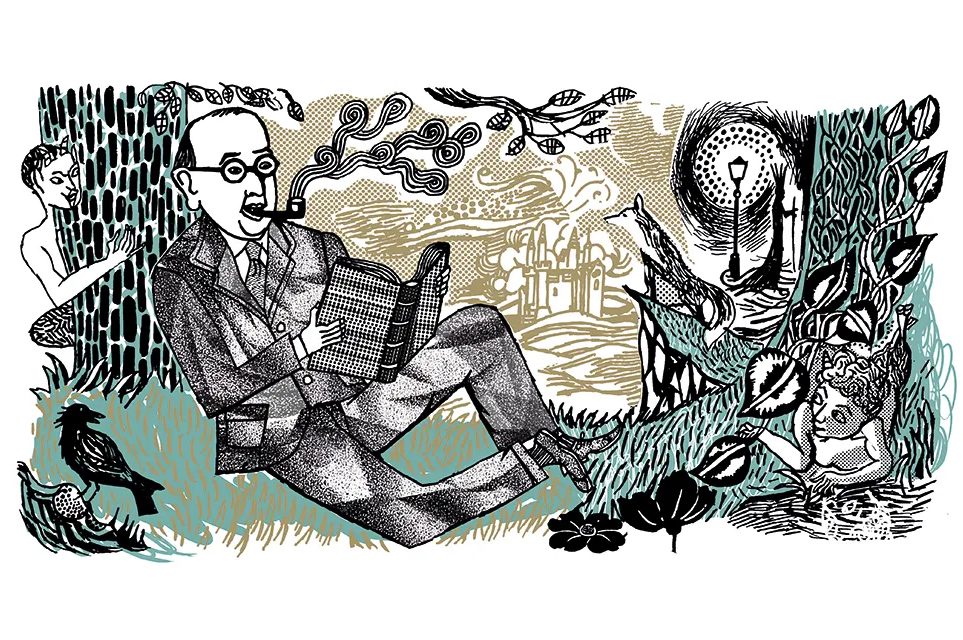






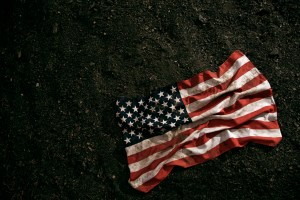
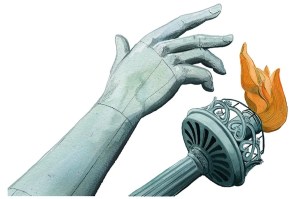
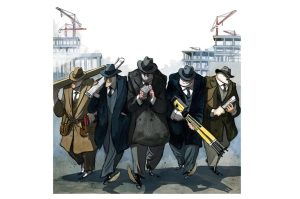

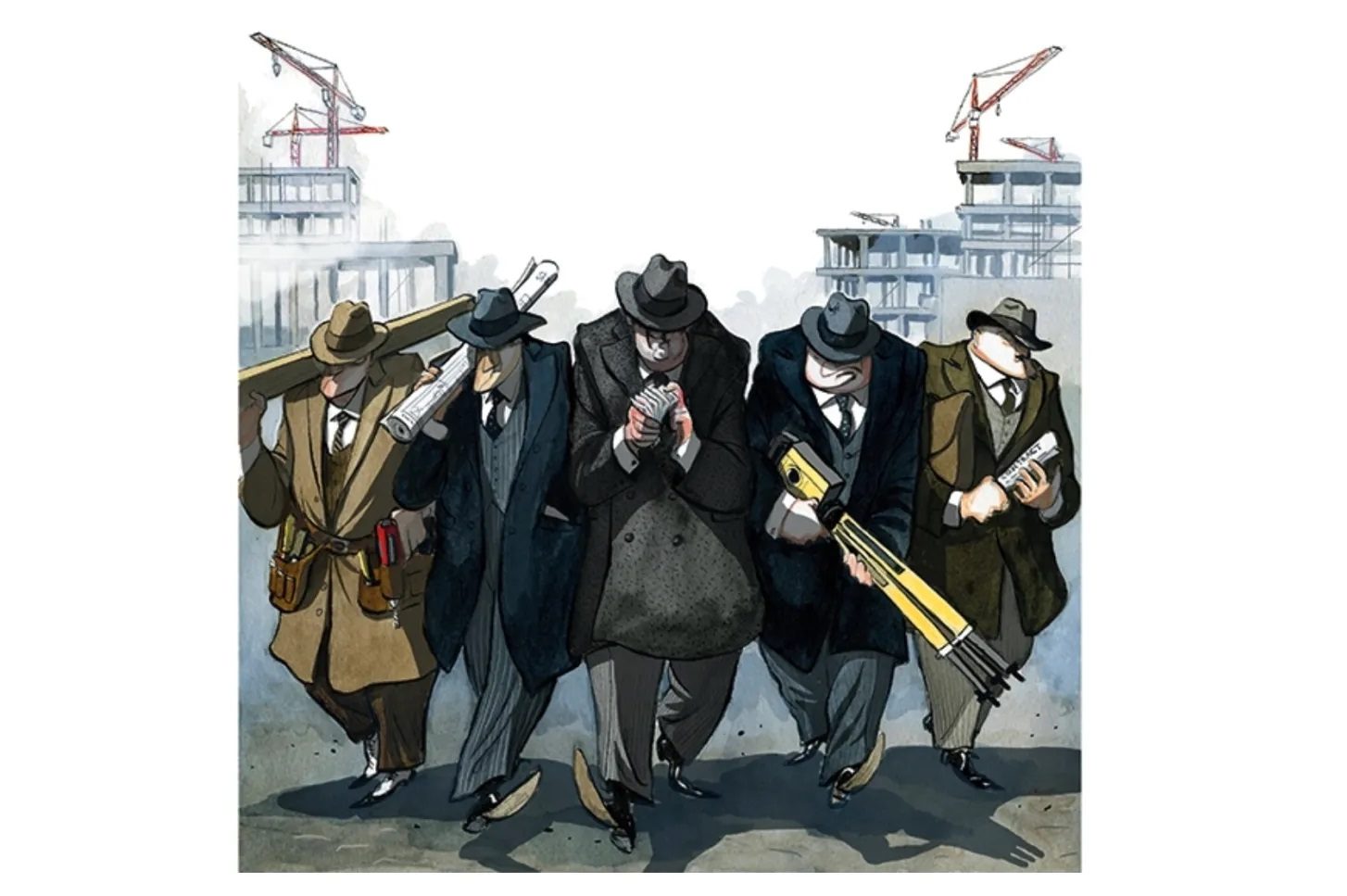

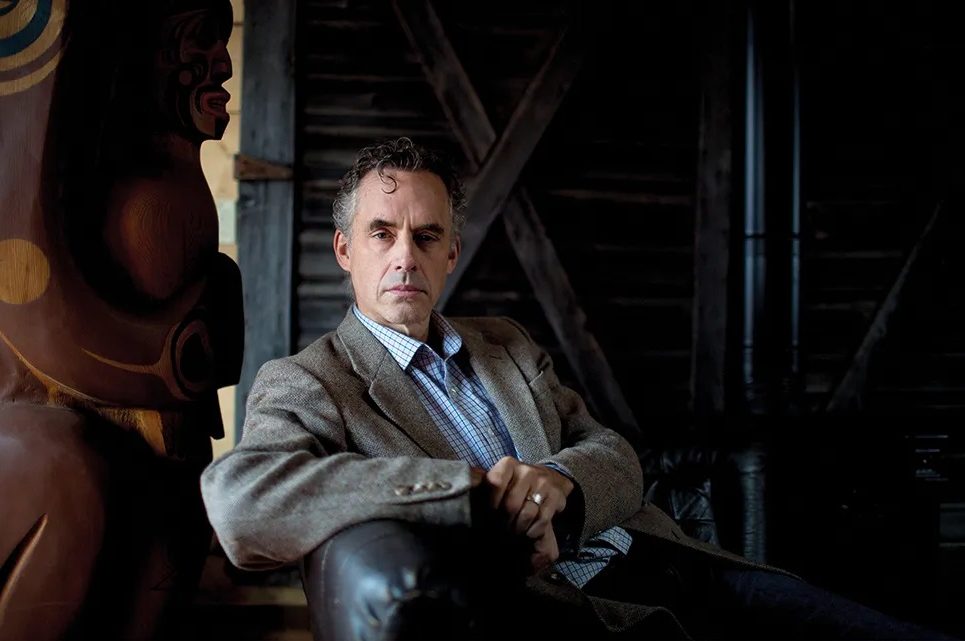









Leave a Reply